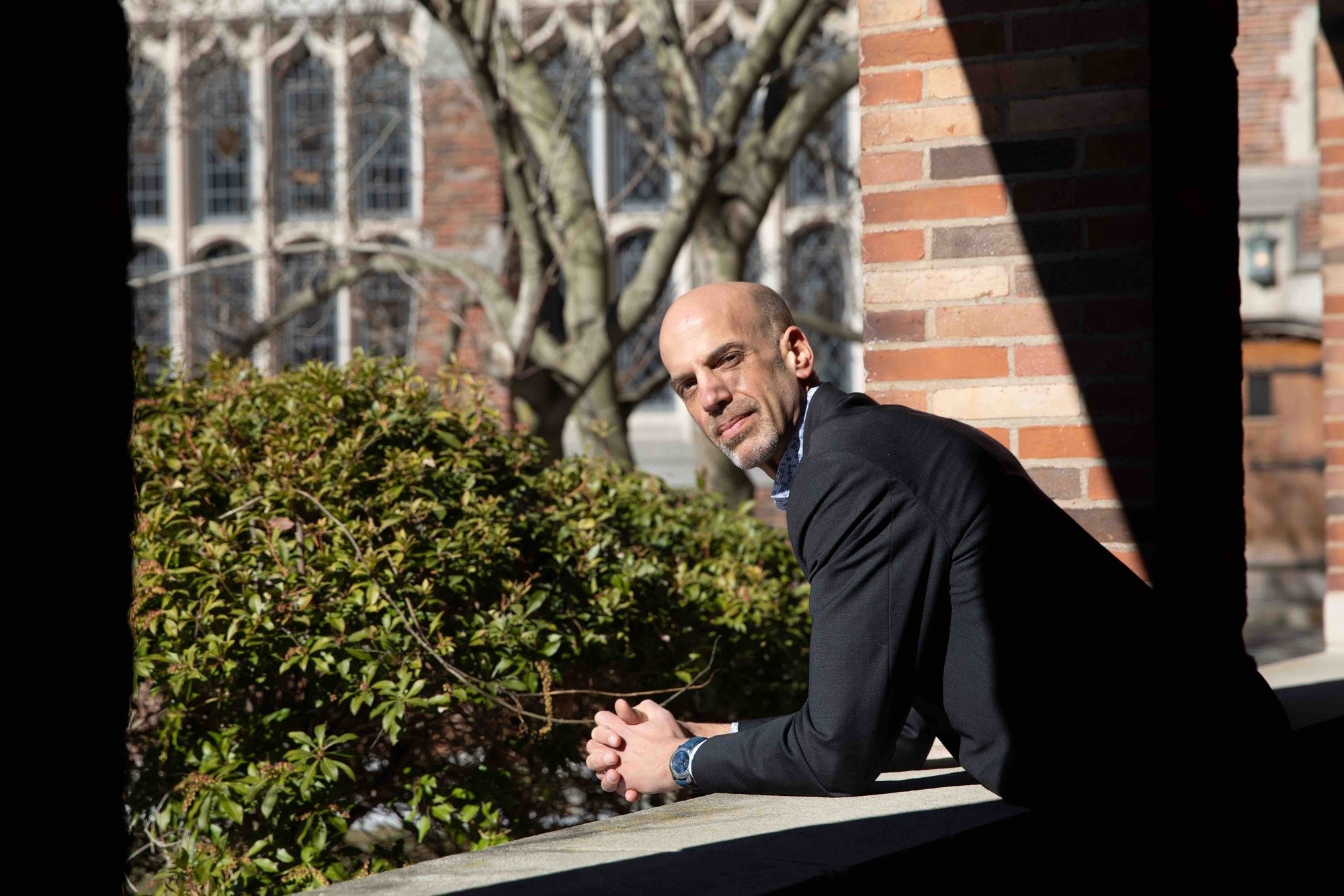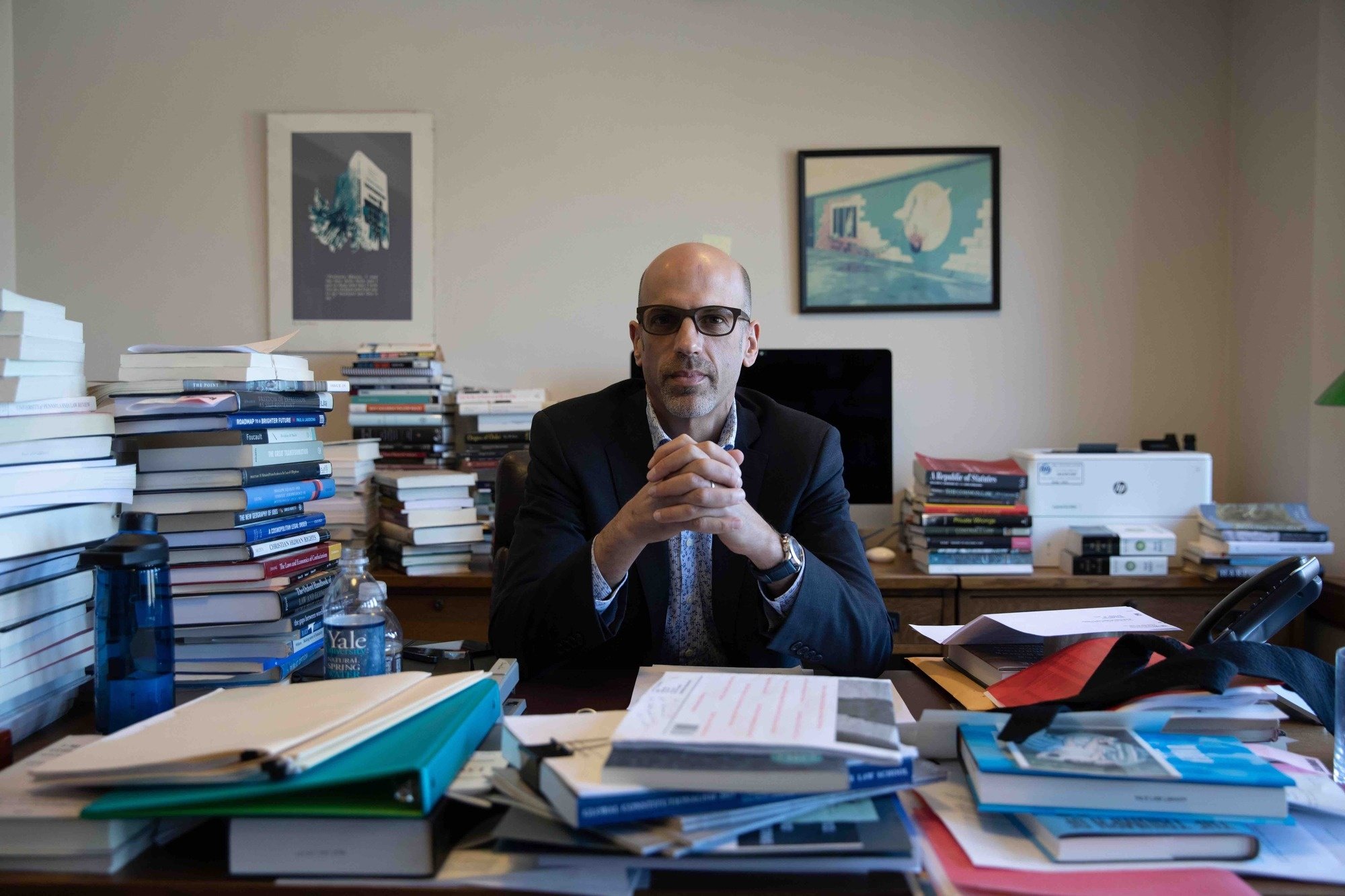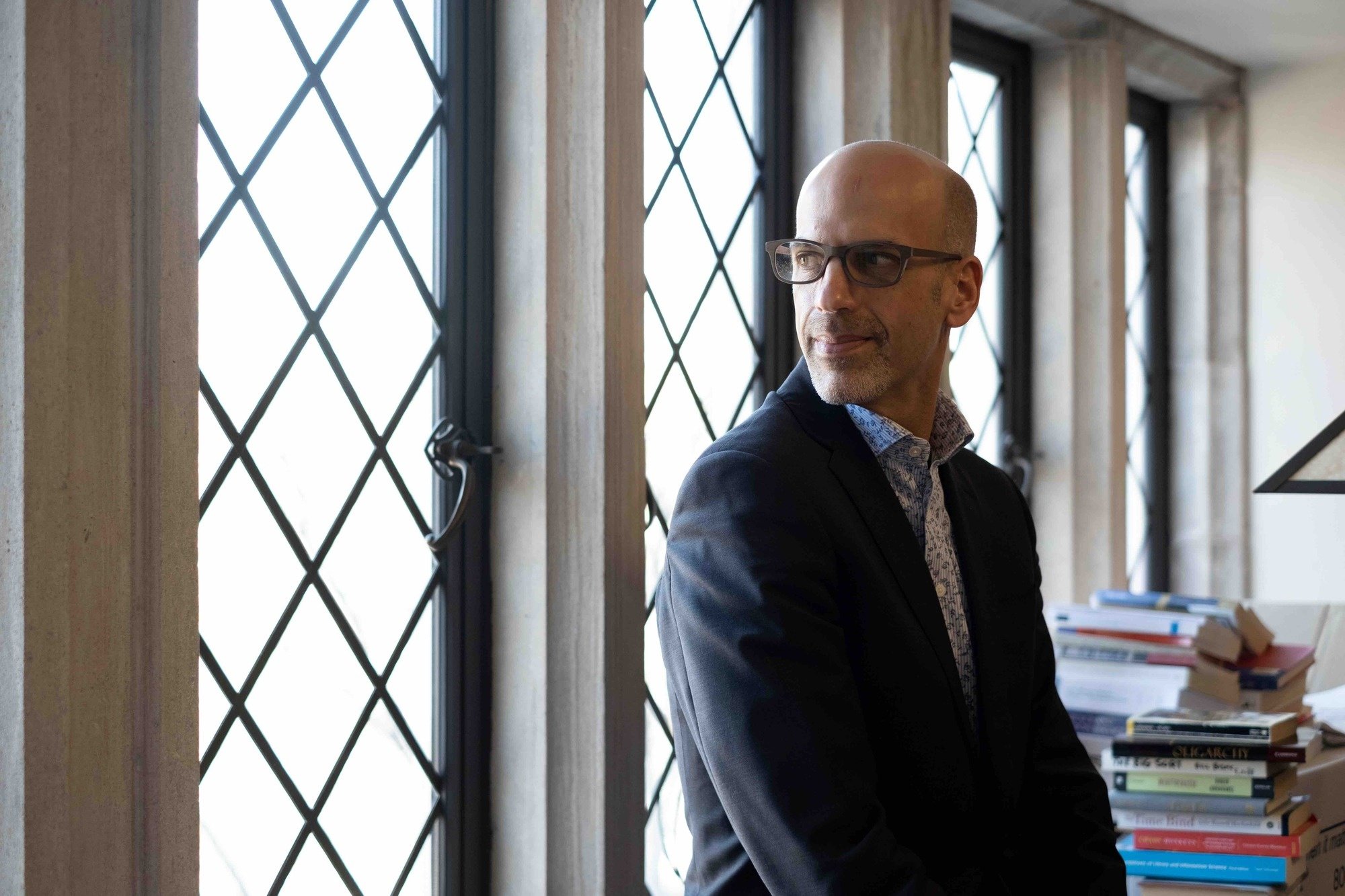Daniel Markovits on why meritocracy isn’t working
Mar 02, 2022
10 mins
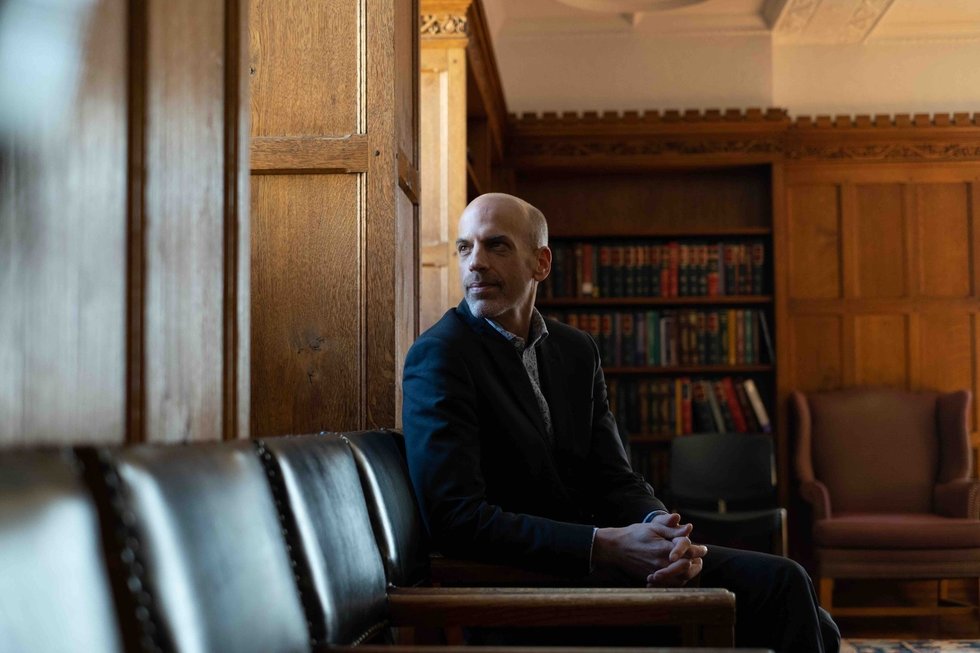

Editorial Coordinator Europe @ Welcome to the Jungle
If you’re pursuing a professionally successful life, chances are you’re betting that talent and hard work will get you there. Because that’s what the meritocratic society we live in has taught us. Well, the bad news is that we might all be wrong or, at least, that’s what Daniel Markovits, Guido Calabresi professor of law at Yale Law School, says in his book The Meritocracy Trap: How America’s Foundational Myth Feeds Inequality, Dismantles the Middle Class, and Devours the Elite. His thesis? Meritocracy can’t be a tool for social equality if it is blocking opportunities for those outside the elites. We discussed with him how he went from being a product of the meritocratic system to fighting against it, and what we can do to combat social and economic inequalities.
You define yourself as a meritocrat in the book. Why did you want to point that out?
That’s more an admission than a definition. There’s a certain awkwardness in my writing critically about a system that has given me the position to be able to write about it, insofar as I have privilege based on the fact that I did well at school and got a bunch of degrees from fancy universities. So it seemed only fair to let readers know that that’s true about me, so I’m an insider critic of the system rather than an outsider. I also now teach at one of those universities, and so I reproduce the system I’m criticizing.
As a product of the meritocratic system and a teacher within that same system, how did you come to realize there was something wrong with it?
I had produced some academic work around what economic equality would require. But then there was a more personal story. I went to a state public high school in Austin, Texas, not the kind where the richest families sent their kids to. And yet I knew that my friends from high school were every bit as capable as my friends from university, but they did not get such good jobs. And then I also started seeing that my own students at Yale were becoming increasingly discontented with what seemed to be their enormous good fortune.
So when I looked at the people I knew, it seemed like this meritocratic system was not serving my friends from high school well, because they found it hard to get ahead although they were capable people. And it wasn’t serving my students at Yale either, because although they’ve gotten ahead, they were feeling increasingly trapped and unhappy. And I started asking myself: “Well, why is that? How is that happening?”
Where was this unhappiness coming from?
First, they became increasingly aware of the enormous economic unfairness they were the beneficiaries of. The US is a society that is used to talking about race, racial inequality and race-based subordination, but that’s not the case for class conversations, because there is this myth that everybody is middle class. So following the financial crisis and the Occupy Wall Street movement, which had a big effect on the way younger people in America thought, they started to become more aware that their privilege was connected to the exclusion of others.
They also became more self-conscious about the fact that their whole lives had been spent chasing the approval of schools, universities, professors, prominent people, under conditions of intense competition in which they were not actually able to decide what they cared about. Because the system requires them to care about one thing: getting good grades on tests, performing under pressure, working the extra hours. So they were realizing that, although they kept pursuing privilege, it wasn’t actually making them happy. They knew perfectly well that when they graduated Yale Law School, they would go to work for a law firm where they would be paid enormous sums of money (right now, a first-year graduate of Yale Law makes more than $200,000 a year). But they would also be expected to work 80 hours a week. And it would be 80 hours a week for the next 40 years. So they finally thought: “Hey, this is a crazy way to live.”
“They became more self-conscious about the fact that their whole lives had been spent chasing the approval of schools, universities, professors, prominent people, under conditions of intense competition in which they were not actually able to decide what they cared about.”
Why did we accept a system that forced us into that situation?
Meritocracy came on the scene in a period when the old elite was still basically aristocratic. And the thing about that aristocracy is that they weren’t particularly hard working nor particularly talented. But then meritocracy came and said, “The way you get ahead is by being talented and hard working,” so all sorts of outsiders started succeeding. Take the example of Yale: in the 1960s, if you went to a fancy elite private school and then to Yale, you were maybe three times less likely to be in an academic honor society than if you went to a state school, because private schools were not particularly intellectually good and they were full of privileged, lazy people. So the best-educated, most talented, hardest-working kids were those who came from the state schools. So, in that system, meritocracy really opened up the elite.
Why did it stop working? Well, the next generations down weren’t lazy and talentless anymore. The meritocratic elite was unbelievably skilled at training its children and had an enormous appetite for hard work. So the system that was once a way of opening up the elite in earlier generations created parents who would spend any sum of money to make sure their kids got more intensive and more effective education than anybody else’s kids did. For this we have good data for the US: the area in which consumption inequality has grown fastest in the past 40 years is education. And that’s the mechanism by which meritocracy, which was once an engine of opportunity, has become an obstacle for everybody outside of the elite.
In that case, do we have to consider that the meritocratic system may be broken? Is it now impossible for people from underprivileged groups to make it in a meritocratic education system?
“Impossible” is too strong a word. But in the US, for example, if you look at the Ivy Plus universities, they have more students whose parents are in the top 1% of income distribution than students whose parents are in the entire bottom 50%. So the reality is that the institutions that are supposed to be producing the next generation of wealthy and powerful people are actually filled with the children of the current generation of wealthy and powerful people.
Again, there are some outsiders who get in, but these are people who are exceptionally talented or exceptionally lucky. And one of the ways in which meritocracy works is by advertising those outsiders as a way of legitimating itself. But good public policy and a fairer system should be good and fair for most people, for ordinary people, not just for exceptional people. And, for now, meritocracy only creates opportunities for ordinary people whose parents are rich.
“Meritocracy only creates opportunities for ordinary people whose parents are rich.”
So how is it that we still think of meritocracy as a positive thing?
The first reason is that we don’t really know how to describe a better alternative. Those we can think of are aristocracy, patriarchy, nepotism, or even apartheid—so some kind of racial caste system or hereditary privilege and discrimination. And those are terrible systems. So we think that meritocracy is at least formally open to everybody.
The other reason is that meritocracy has this sort of insidious feature that even as it produces enormous inequalities of opportunity, and even as it takes increasing amounts of privilege in your background in order to get ahead, it’s still true that the people who get ahead work for it. You still need advantages in order to be in a position in which your hard work can pay off, such as parents who can give you the support you’ll need, who can pay the tuition, who can get you to private universities. But once you get to those places, you’re working very, very hard, and that effort leads the people who win to feel like they deserve it. So the story they tell about their own lives is, “I worked really hard to get to where I am,” and that story isn’t false. They did work really hard to get to where they are. It’s just that it’s not the whole story.
“You still need advantages in order to be in a position in which your hard work can pay off, such as parents who can give you the support you’ll need, who can pay the tuition, who can get you to private universities.”
This is what you describe in the book as “the exploitation of the elite.” But isn’t “exploitation” a concept that is hard to justify when we are talking about a group of people who are getting vast incomes in exchange for their labor?
We have to distinguish two quite different ideas when we talk about exploitation. One is a straightforwardly moral idea and is connected to fairness: one person who exploits another by extracting an unfair share of the other person’s product. And in that sense it’s hard to see how the elite is exploited because they’re getting rich, and they’re keeping all of the product of their work.
But there’s another sense of exploitation that we use, for example, when we say that a country exploits its natural resources and turns them into economic wealth. In that sense, it’s also possible for me to exploit myself, since I can use my work to make things that are meaningful to me, or I can exploit myself, turning my talents into a means to serve the ends of producing income and wealth. So I’m doing it, I hate the work, I work all the time, I don’t like the environment I’m working in, I don’t believe what I’m doing is good for humanity, but it’s a way of converting my talent into money. And I’m becoming alienated from my own labor, my own work, my own capacities, because I’m not pursuing my authentic interests. Then I’m exploiting myself.
Why was it important for you to shine a light on the topic of the “exploited elites?”
Because, in order to avoid a future with a running privileged class, the elite is going to have to become less privileged. It’s going to have to become less rich. It’s going to have to become less powerful. That raises the question about how that is going to happen, because the history of trying to get entrenched elites to give up their privilege is not one that should make us optimistic. So the interest of the argument about existential exploitation is to use it to try to persuade the elite that they’d be better off too.
The system that is making you so wealthy and privileged is actually harming you in human terms. Look at yourself. You’re not happy. You’re not flourishing. You’ve lived a life in which you’ve been terrified you would fail to measure up. And you’ve gotten to a place where you have a very high-status job and now you’re terrified your children won’t measure up. And it’s just going on and on, and if you would give up some of your privilege, you could escape that alienation and fear. And that argument is important in persuading the rich to go along with the changes we need in order to democratize our society.
“In order to avoid a future with a running privileged class, the elite is going to have to become less privileged. It’s going to have to become less rich. It’s going to have to become less powerful.”
Do you think the pandemic might have helped society move towards a more democratic system?
It helped in the sense that it made people realize that workers who had previously been called “unskilled” were in fact essential. It also made the elite take stock of what they were doing, and realize that much of their own work was not meaningful. And the policies that governments put in place to stabilize the economy, at least in rich countries, came closer to a universal basic income than we’ve ever seen anywhere. The result has been that lots of workers outside the elite have refused to work under the terms of trade they previously worked under.
But…
But the pandemic has also been bad in other ways. First of all, the rich have gotten richer, enormously richer, so inequality is worse. In education, middle-class schools more or less stopped functioning for large periods of the pandemic, so the average US school child has lost around half a year’s education, while the richest schools have mostly kept going. Yale, for example, has basically been in person throughout the pandemic.
How did we achieve that? Well, if you test everybody twice a week, and put aside dormitories for quarantine, and have systems of delivering meals, and masks for everybody, and install air purifiers in classrooms, you can just keep going. But you need an enormous amount of money to be able to do that and, of course, that produces enormous educational inequality. So with the rich just getting educated and the rest having lost at least half a year of education, that’s going to make things worse, too.
So what’s to be done in the short term?
People are increasingly committed. But inequality keeps growing, so understanding what’s going on is a necessary—but not sufficient—condition for changing it. Yet there are incremental steps that we can take collectively so we build political power over generations. When we work politically, as activists, we should fight for changes, because when we win a small victory, our side gets stronger. We’re not going to win tomorrow, so we need to make changes that help power grow, in addition to making things better now.
In the US, for example, and in Europe, there is something of a tension produced by the current system of economic inclusion and workers’ rights. And racial and ethnic inclusion, and immigrants’ and people of color’s rights… Because one of the things we’re seeing is that right-wing populism is exploiting the economic resentments of white national “minorities” (since our societies are becoming more and more multicultural) against people of color and immigrants. So as activists in favor of equality, we want to produce policies that unite these groups rather than divide them.
Think about exclusive private schools and universities, which are currently both unbalanced for people of color, immigrants, and racial and ethnic minorities, and also for middle-class white people. We need policy reforms that expand opportunity in education, not by creating a competition between the white middle class and people of color for the same spots, but by requiring elite schools and universities just to admit more students. And once that has happened, you have a larger educated class with those backgrounds that will grow in power to promote other people. Policies like this are achievable. Maybe not today, but this year or next year, not a generation from now. And when we get them, they make us stronger. That’s got to be the strategy.
Photo: Bess Adler forWelcome to the Jungle
Follow Welcome to the Jungle on Facebook on LinkedIn and on Instagram and subscribe to our newsletter to get our latest articles every day!

More inspiration: DEI
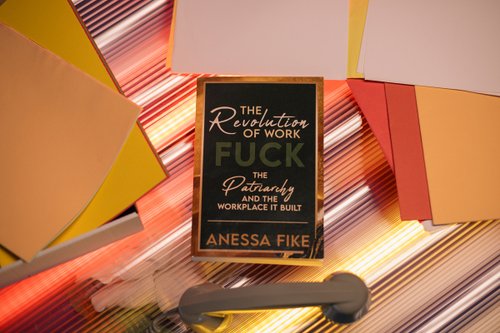
Sh*t’s broken—Here’s how we fix work for good
Built by and for a narrow few, our workplace systems are in need of a revolution.
Dec 23, 2024

What Kamala Harris’s legacy means for the future of female leadership
The US presidential elections may not have yielded triumph, but can we still count a victory for women in leadership?
Nov 06, 2024

Leadership skills: Showing confidence at work without being labeled as arrogant
While confidence is crucial, women are frequently criticized for it, often being labeled as arrogant when they display assertiveness.
Oct 22, 2024

Pathways to success: Career resources for Indigenous job hunters
Your culture is your strength! Learn how to leverage your identity to stand out in the job market, while also building a career
Oct 14, 2024

Age does matter, at work and in the White House
What we've learned from the 2024 presidential elections about aging at work.
Sep 09, 2024
The newsletter that does the job
Want to keep up with the latest articles? Twice a week you can receive stories, jobs, and tips in your inbox.

Looking for your next job?
Over 200,000 people have found a job with Welcome to the Jungle.
Explore jobs
